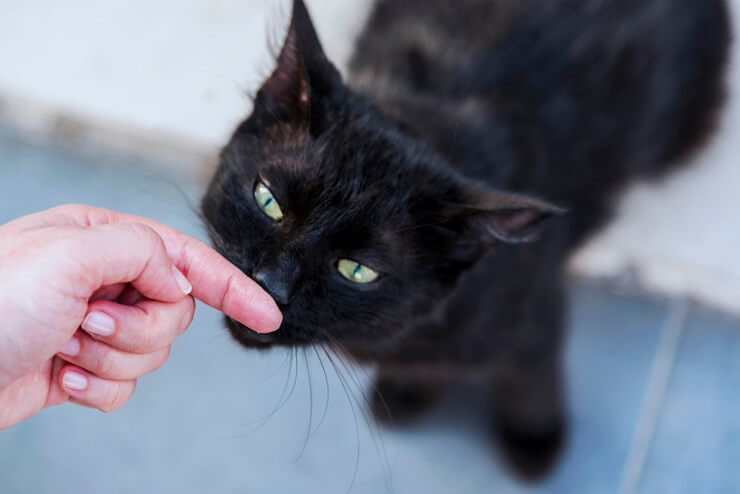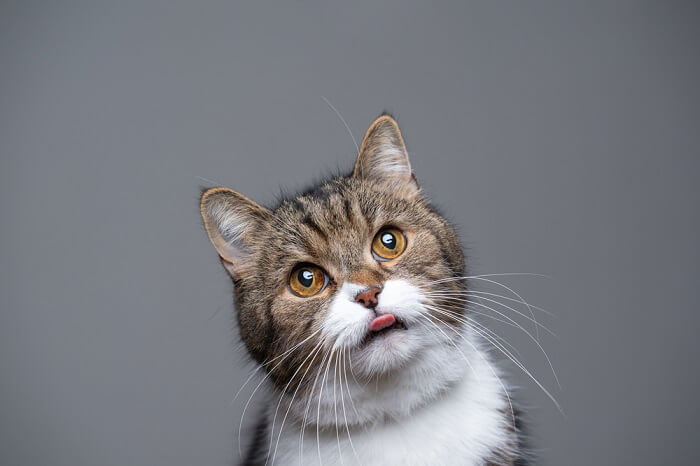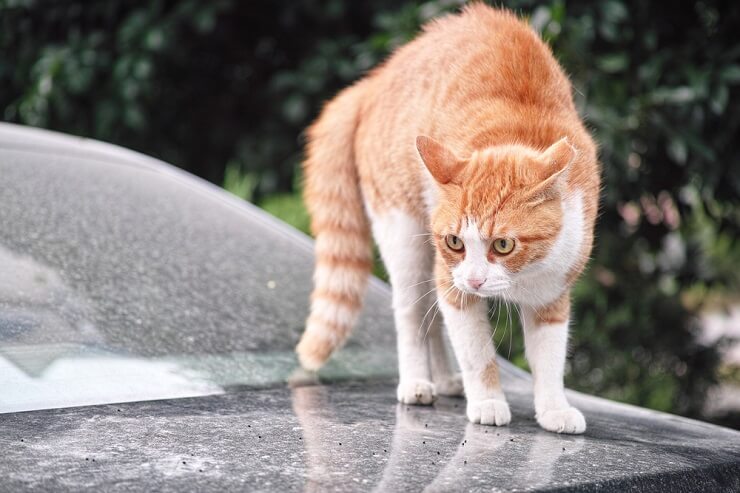What Smells Do Cats Hate: 11 Surprising Nose No-Nos
This page contains affiliate links. We may earn money or products from the companies mentioned in this post through our independently chosen links, which earn us a commission.
Did you know that a cat’s sense of smell is 14 times stronger than yours?
Recent research further shows that cats have a more sensitive sense of smell than canines. This means that a cat can differentiate between various smells better than both dogs or humans!
Due to your cat’s ability to smell odors more intensely, it also means that your feline doesn’t perceive scents in quite the same way that you do. For example, something like your sweet lavender-smelling perfume may not be as pleasant to your cat as it is to you.
So, what smells do cats hate? Let’s find out.
1. Hot Peppers And Other Spicy Smells

Cats don’t like the smell of pepper, nor are they a fan of spicy food generally.
Hot pepper in ground or fresh form isn’t something that your furball will fancy. Other spices that your feline will not want to get too close to include cinnamon and mustard.
Chili peppers contain something called capsaicin which is what gives hot peppers their spiciness. Whilst chili peppers aren’t poisonous, and won’t be fatal to cats, they can cause quite a lot of irritation to their stomach and intestines (guts) leading to tummy troubles.
Cats know this, and that’s why they will try and avoid chili peppers by all means possible! Capsaicin, due to its unpleasantness, is also added to many cat repellants for this reason.
However, some cats will munch on sweet peppers such as bell peppers as they don’t have any capsaicin.
2. Mint, Menthol, Wintergreen, Rue, And Other Herbs
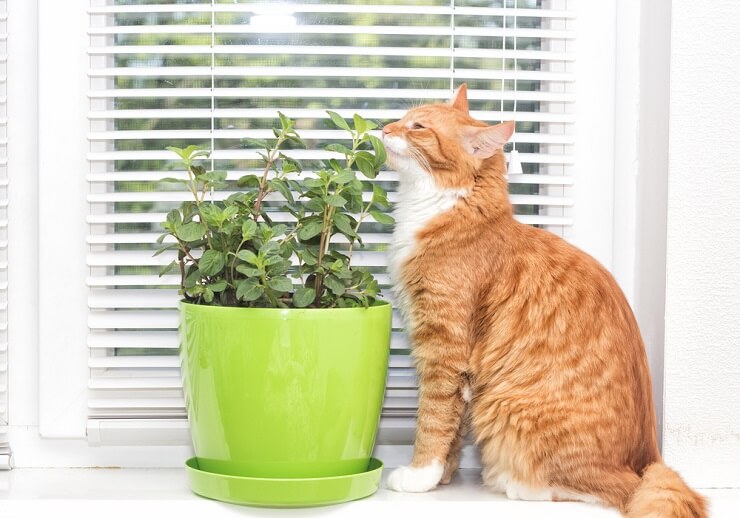
Cats hate strong-scented herbs such as mint, Rue, lavender, marigolds, rosemary, lemon thyme, eucalyptus, pennyroyal, coleus, among others.
According to the ASPCA, the lavender plant is mildly toxic to cats causing vomiting, diarrhea and reduced appetite. They are even more sensitive to essential oils made from lavender, so extra care should be taken with this. Essential oils could cause central nervous system depression and liver damage if ingested in significant quantities.
Similarly, mint can also cause vomiting and diarrhoea to your feline, if eaten in large quantities.
If you want to use any of the mentioned herbs as a cat deterrent, ensure you use the non-toxic ones.
3. Bananas
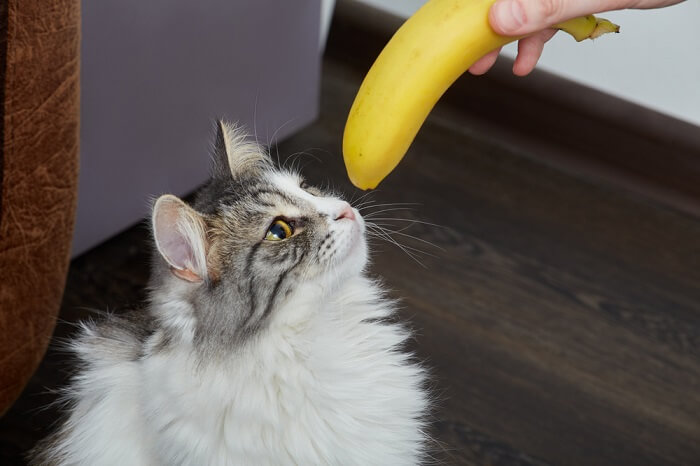
Your feline probably doesn’t like the smell or the taste of bananas. It’s not clear why cats can’t stand the smell of bananas. However, some scientists believe it may be something to do with the high potassium levels they contain.
If you want to keep your cat out of certain areas in your home, banana peels are a perfect non-toxic deterrent. Throw a few banana peels around your garden or next to your potted plants to keep your cat away.
4. Citrus Fruits
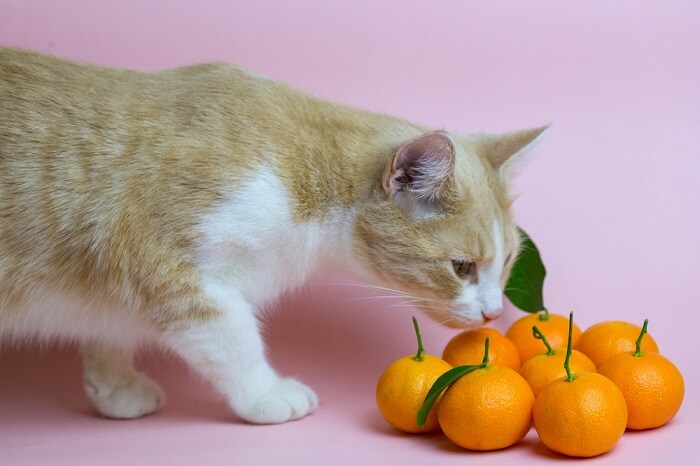
Citrus smells including lime, orange, mandarin, grapefruit, and lime are repugnant to many cats and canines. The oils from citrus fruits are also potentially harmful to your cat, which is why they usually avoid them.
To keep your cat away, place a few lemon or orange peels on strategic locations such as your kitchen cabinet.
5. Some Essential Oils
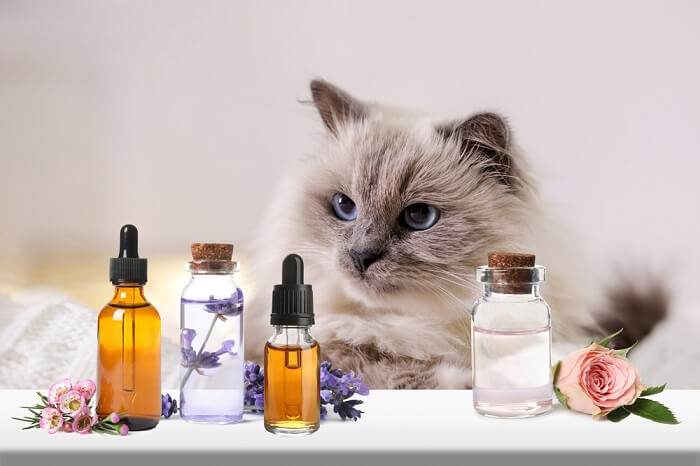
As mentioned earlier, essential oils with strong scents like cinnamon, geranium, lavender, peppermint, tea tree, eucalyptus, and lemongrass will most likely send your cat scurrying away.
Be careful though, it is not recommended to use essential oils as a deterrent as some of them (like lavender, eucalyptus, peppermint, and tea tree) are harmful if ingested.
6. Ground Coffee
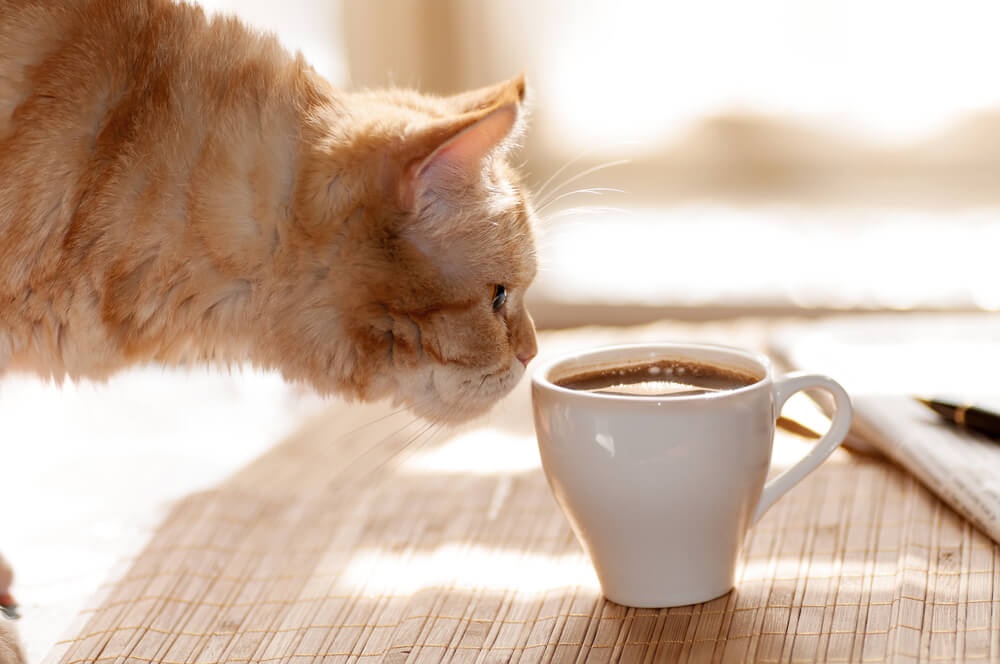
If you often wonder why your cat never gets close to your morning cup of Joe, it’s because felines don’t really like the smell of coffee.
And for a good reason, caffeine is toxic to both cats and dogs. Ingestion can be life-threatening if they eat a significant enough quantity. So, it’s advisable not to use caffeinated coffee grounds in the garden to keep cats at bay.
7. Human Hair
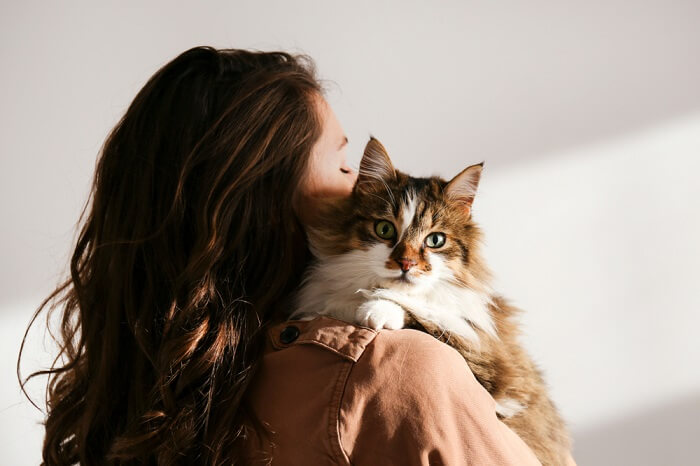
Another surprising scent that some cats can’t stand is the smell of human hair.
If you want to use your hair as a cat repellant, get hair strands from your hairbrush and place them in strategic places that you don’t want your furball to visit.
It might be worth a try!
8. Vinegar
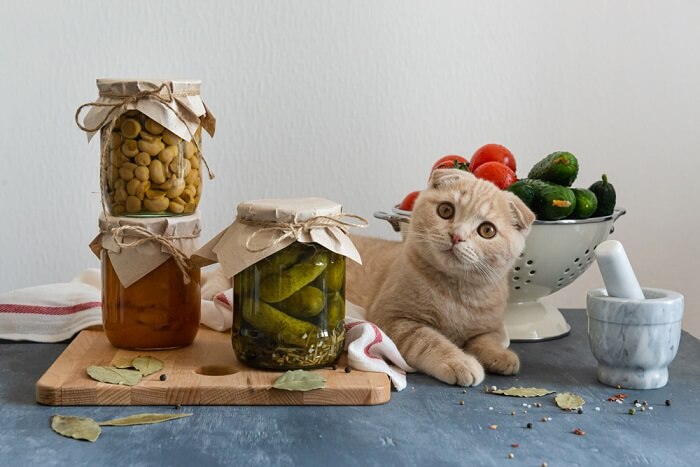
Vinegar is used for cleaning in most households.
However, cats don’t share your love for it.
The good news is that vinegar isn’t toxic to your feline, so you can safely use it as a deterrent.
Use vinegar to clean your countertops, . Or mist it around any bedding or pot plants that you’d rather your cat didn’t touch.
9. Old Fish
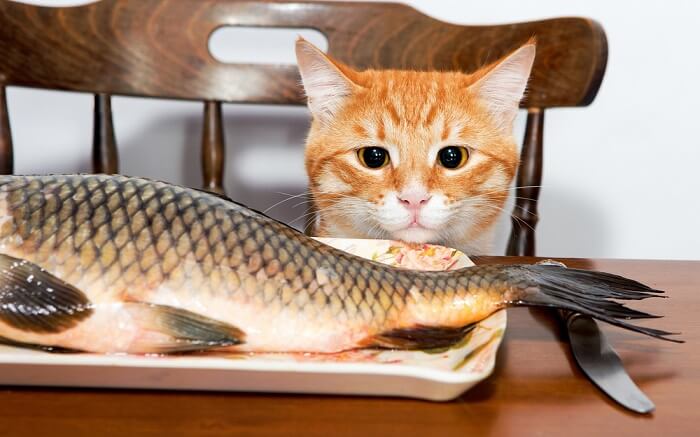
Just like you, cats can’t stand anything that has gone bad.
Some cat parents think just because cats love to eat fish or because they’re animals, they will gladly eat bad fish.
Unfortunately, cats are very picky eaters. And although they love the taste of fish, they can’t eat one that has gone bad. This is actually no bad thing, as it stops your cat getting sick from eating gone-off food.
If you intend to feed your cat some fish, ensure it’s fresh as your feline won’t touch fish that smells off.
10. Cleaning Products, Soaps, and Deodorants
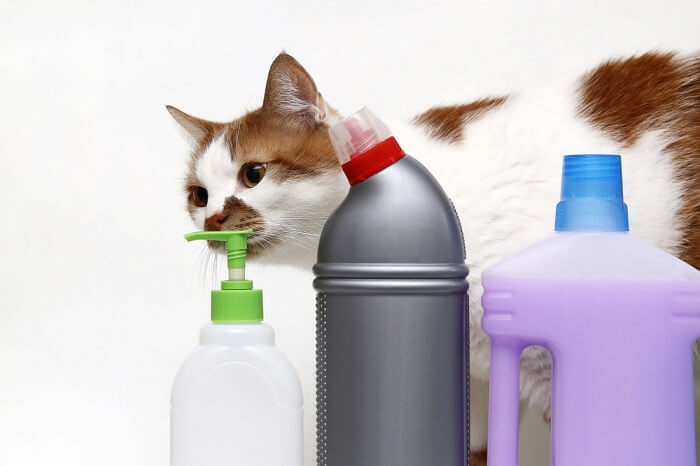
Most of the household cleaners, soaps, and air fresheners have aromas that are unpleasant to cats. The odors in these products may be too much for your cat’s sensitive nose. You may notice your cat avoiding areas where these products have been used.
Just as with household cleaning products, cats don’t like anything that is too perfumed. You might be surprised to see your cat leave the room when you spray some perfume or put on your deodorant.
Avoid using any products that are too fragrant to clean your cat’s bowls, bedding, litter box, or toys. If you do, they may avoid using them altogether.
11. A Dirty Litter Box
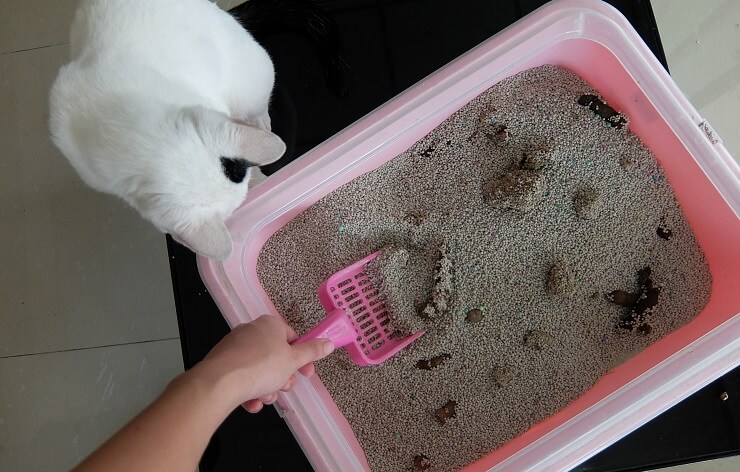
It shouldn’t surprise you that cats can’t stand the smell of dirty litter.
Felines are fastidiously clean animals and will avoid using a smelly litter box at all costs. If you don’t clean your feline’s dirty litter box daily, your cat may resort to doing their business in unwanted places such as your closet, sofa, carpet, or your bed.
Cats are also sensitive to the smells of other felines. So, if you have multiple cats ensure you have enough litter boxes so that every cat has their own litter box.
All of the litter in the box should also be changed every week or more often if you have multiple cats.
Conclusion
Your cat has a more sensitive sense of smell than you.
Therefore, anything that smells powerful for you will probably be too much for your feline.
Hopefully, now that you know the scents that are a no-no to your furball, you’ll be able to keep their nose happy.
If you need a cat deterrent then make sure you pick something from the list that is not toxic, to ensure that no cats come to harm.
Frequently Asked Questions
What smell will repel cats?
Cats are more sensitive to smells than humans. So, anything with a strong odor, such as citrus, lavender, or eucalyptus, will repel cats. Just avoid using essential oils which could cause toxicity.
Cats will also stay away from citrus-smelling substances such as lemon, orange, or lime. Vinegar, banana peels, and human hair are said to be effective, non-toxic repellants. You can also opt for a commercial organic repellant that is non-toxic to your feline.
What is a natural cat deterrent?
If you want to discourage stray cats from visiting your garden, you could try a natural cat deterrent.
A natural cat deterrent is anything made from natural, non-toxic materials to keep cats away. Examples of these include fresh orange or banana peels, the rue plant, or vinegar. In addition, you can use prickly plants such as roses or holly or even some netting to keep cats from your garden. Avoid using coffee grounds as these can be toxic if eaten in large amounts.
Indoor natural deterrents include things like aluminum foil, sandpaper, double-sided tape, or baby gates that you can use to restrict your cat’s access to some areas.

